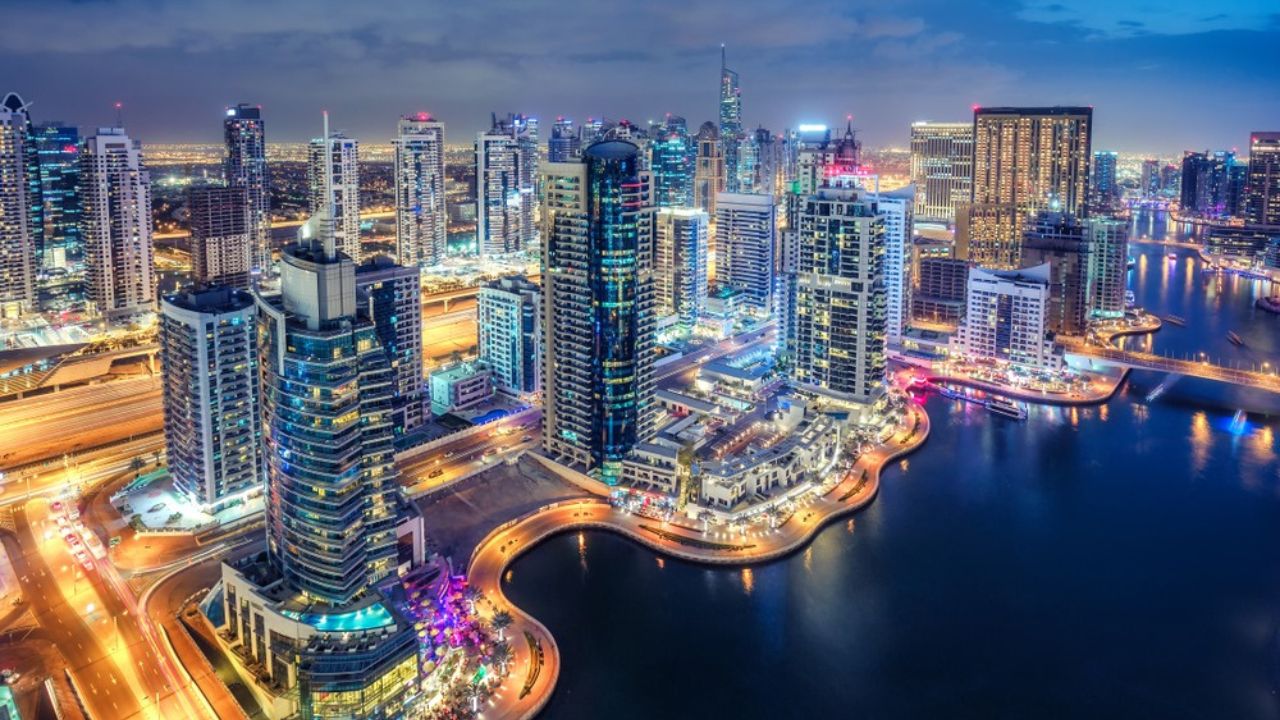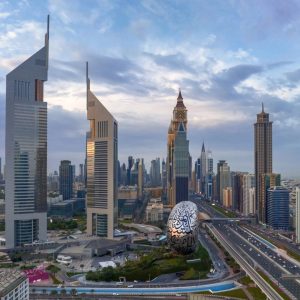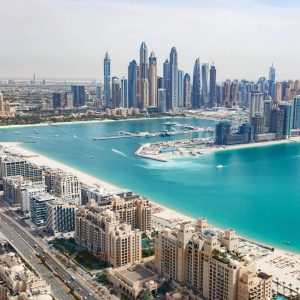
Financing your investment in Dubai
Dubai is one of the most attractive cities in the world for real estate investment. With its booming economy, tax-free environment, and luxury developments, it’s no wonder that investors from all corners of the globe are eager to invest in Dubai’s property market. However, one of the key considerations for any investor is how to finance their investment in Dubai.
Whether you’re buying off-plan properties, looking for rental yield opportunities, or considering obtaining an investor visa in Dubai, financing plays a crucial role in your ability to successfully navigate the real estate market. Beyond investment considerations, living in Dubai offers additional advantages, including a cosmopolitan lifestyle, world-class amenities, and a safe, tax-free environment that enhances the overall value of property ownership in the city.

Financing Your Investment in Dubai: An Overview
Financing your investment in Dubai typically starts with mortgage pre-approval, which clarifies budget, eligibility, and maximum loan-to-value. Buyers can choose between fixed or variable rates, as well as Islamic finance (Murabaha/Ijara) for Sharia-compliant options. Non-residents usually qualify with additional documentation and slightly lower LTVs, while residents may access more flexible terms. When calculating true net returns, don’t forget the total cost of borrowing, including bank fees, valuation, DLD fees, and early settlement charges applicable even for crypto-based property investments.
Why Dubai?
Dubai continues to attract investors due to its favorable business climate, high rental yields, and stunning property developments. The city offers tax-free rental income, no capital gains tax, and has a stable political and economic environment. However, before making an investment, it’s essential to understand the various financing options available to both residents and non-residents.
Types of Financing Available for Property Investment in Dubai
Investors in Dubai can access several financing options tailored to their needs. Conventional mortgages from local and international banks remain the most common, offering fixed or variable interest rates. Islamic financing solutions, such as Murabaha and Ijara, provide Sharia-compliant alternatives. Additionally, developer payment plans and post-handover schemes allow buyers to spread payments flexibly, making property investment more accessible.
Bank Mortgages for Non-Residents
Dubai’s banking sector offers competitive mortgage rates for international investors. However, non-residents are required to meet certain criteria to qualify for a mortgage loan.
Eligibility Criteria for Mortgages in Dubai
- Down Payment: Non-resident investors are typically required to make a down payment of at least 25-35% of the property value. This is higher than the down payment required for UAE residents.
- Loan-to-Value Ratio (LTV): For non-residents, the LTV is generally between 60-75%, depending on the bank and the property type.
- Income Verification: Banks will require proof of income, which includes salary slips, bank statements, and proof of employment or business ownership.
Credit History: A good credit history is essential for securing favorable terms on a mortgage loan.
Developer Financing for Off-Plan Properties
Investors interested in purchasing off-plan properties can often access financing directly through the developer. This option is especially attractive for non-residents who might find it challenging to obtain a traditional mortgage.
Key Benefits of Developer Financing
- Flexible Payment Plans: Developers typically offer flexible payment plans, with investors paying in installments during the construction phase.
- Lower Initial Costs: Because you’re not required to pay the full amount upfront, this can make it easier for you to invest in Dubai’s property market.
- Longer Payment Terms: Developer financing may allow you to stretch out the payment terms over several years, making the initial cost more manageable.
Things to Consider
- Developer financing is only available for off-plan properties, which means you’ll be buying a property before it’s completed.
- Interest rates on developer financing are often higher than traditional bank mortgages, so it’s important to carefully evaluate the terms.
Cash Purchases
If you have the financial capability to do so, paying cash for a property is the most straightforward option. It eliminates the need for a mortgage and can significantly simplify the process of purchasing real estate.
Benefits of a Cash Purchase
- No Interest Payments: You’ll avoid paying interest over the life of the loan.
- No Approval Process: Cash purchases require no mortgage application, reducing paperwork and approval delays.
Faster Transactions: Since there’s no lender involved, the process of transferring ownership is much quicker.
Investing in Real Estate in Dubai: Key Areas to Focus On
Dubai offers a wide range of real estate investment opportunities across various neighborhoods. Choosing the right location is key to maximizing your investment returns. Investing in real estate in Dubai can be a wise decision.
Where to Invest in Dubai
- Downtown Dubai
Home to iconic landmarks like the Burj Khalifa and Dubai Mall, Downtown Dubai is one of the most sought-after locations for real estate investment. Rental yields in this area are strong due to the high demand for both residential and commercial properties.
- Dubai Marina
Known for its luxury waterfront properties and vibrant atmosphere, Dubai Marina remains a top choice for investors looking for both high rental returns and capital appreciation.
- Business Bay
As a commercial and residential hub, Business Bay offers a mix of office spaces and residential properties. Its proximity to Downtown Dubai and the Dubai Water Canal makes it an attractive area for investors seeking long-term growth.
- Saadiyat Island
Saadiyat Island is known for its cultural institutions, luxury developments, and scenic beauty. With the Louvre Abu Dhabi and other major developments underway, the island offers strong potential for capital growth.
- Yas Island
Yas Island is a thriving entertainment hub with attractions like Ferrari World and Yas Marina Circuit. It also offers great potential for both short-term and long-term rental yields.
Should You Buy Off-Plan in Dubai?
Buying off-plan in Dubai can be a smart strategy, especially for investors seeking lower entry prices and flexible payment plans. Many projects offer strong capital appreciation potential once completed, making it attractive for long-term gains. However, risks like delayed handovers or market fluctuations must be carefully considered. Conducting due diligence on the developer’s track record is essential before committing.
The Appeal of Off-Plan Properties
Off-plan properties remain a popular choice for investors in Dubai. Buying a property before construction is completed offers the chance to secure a lower purchase price and benefit from potential capital appreciation once the property is ready.
Benefits of Buying Off-Plan
- Lower Prices: Developers often offer discounts on off-plan properties, which can result in significant savings.
- Flexible Payment Plans: Payment terms are typically spread over the construction period, making it easier to manage the cost.
- Capital Appreciation: As the property is built, its value may rise due to market demand and the development of the surrounding area.
Risks of Off-Plan Investments
- Delays in Completion: Off-plan projects are sometimes delayed, which could affect your return on investment.
- Market Fluctuations: The value of the property may decrease by the time it’s completed if the market shifts unfavorably.
Rental Yield in Dubai: What You Need to Know
Rental yield in Dubai is one of the highest globally, with many areas offering 6% to 8% annual returns, far above cities like London or New York. Popular communities such as Dubai Marina, JVC, and Business Bay consistently attract tenants, ensuring strong rental demand. Investors should compare gross vs. net yields, factoring in service charges and maintenance costs. Understanding these dynamics helps maximize profitability and long-term portfolio growth.
What is Rental Yield?
Rental yield refers to the return on investment from rental income, expressed as a percentage of the property’s value. In Dubai, rental yields vary depending on the property’s location, type, and the market’s demand.
- Average Rental Yield: The average rental yield in Dubai is between 5-7%, with prime areas like Dubai Marina and Downtown Dubai offering some of the highest returns.
- High-Yield Areas: Areas like Jumeirah Village Circle, Dubai Silicon Oasis, and Dubai Sports City offer rental yields between 6-8%, making them attractive options for investors looking for steady cash flow.
Investor Visa in Dubai
The Investor Visa in Dubai allows foreign property buyers to secure long-term residency, making it an attractive benefit of real estate investment. Depending on the property value, investors can obtain 2, 5, or even 10-year visas, linked to their ownership. This visa provides stability, access to local services, and easier family sponsorship. For global investors, it enhances both lifestyle and financial opportunities in Dubai’s growing market.
Investor Visa Overview
Dubai offers an investor visa program that allows foreign nationals to live and work in the UAE by making a significant investment, typically in real estate. This is a fantastic option for those who want to enjoy the benefits of living in Dubai while making a smart investment in the property market.
How to Qualify
- Minimum Investment: To qualify for the investor visa, you need to invest at least AED 1 million in real estate.
- Eligible Properties: The property must be located in a designated area and must meet the requirements set by the Dubai Land Department (DLD).
- Additional Requirements: Applicants must meet health and financial stability requirements, as well as pass a background check.
Taxation in Dubai
One of the most attractive features of investing in Dubai is its favorable tax regime. Here’s a breakdown of what you need to know about real estate taxation in Dubai:
- No Property Tax: Dubai does not levy property taxes, which is a huge advantage for real estate investors.
- No Capital Gains Tax: There is no tax on the sale of a property, meaning investors can sell their properties and keep all of the profit.
- VAT: A 5% VAT applies to some services related to real estate, such as agency fees and property management services, but there is no VAT on rental income or property sales.
Financing your investment in Dubai is an essential part of the real estate journey, and understanding the available options whether through a mortgage, developer financing, or cash purchase will help you make the best decision. With a tax-free environment, high rental yields, and strong market growth, Dubai remains one of the most attractive real estate destinations in the world.
If you’re ready to explore your investment options in Dubai, check out Opportunities in Dubai and use our Investment Tool to get started with your next real estate venture.
Contact Valorisimo for a tailored consultation and explore the best opportunities in Dubai real estate market.
Related Posts

Golden Visa Dubai: Complete Guide for Investors in 2025

UAE Mortgage Guide: 2025.

Service Charges in Dubai & Abu Dhabi 2025.

Spotlight on Dubai’s Most Active Developers in 2025

A Comprehensive Guide to Mortgages in Dubai Real Estate

How Cryptocurrency is Shaping the Future of Real Estate in Dubai

Living in Dubai: Expat Guide 2025

Buying Property in Dubai with Cryptocurrency

